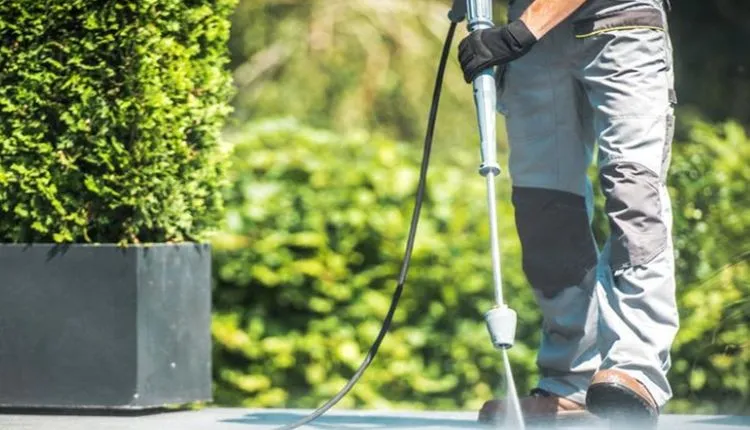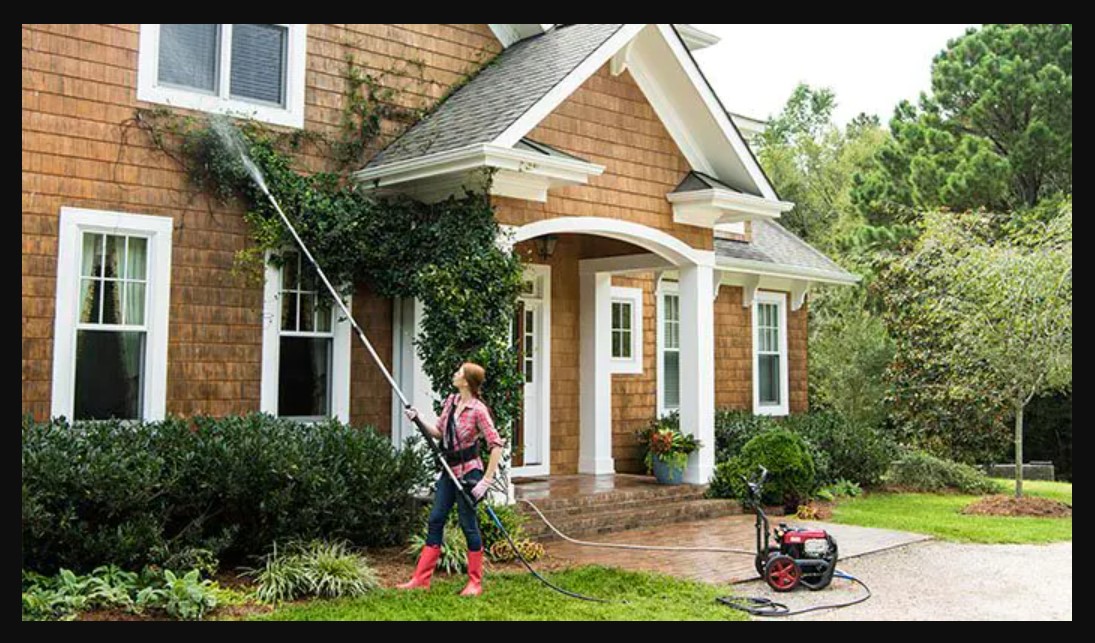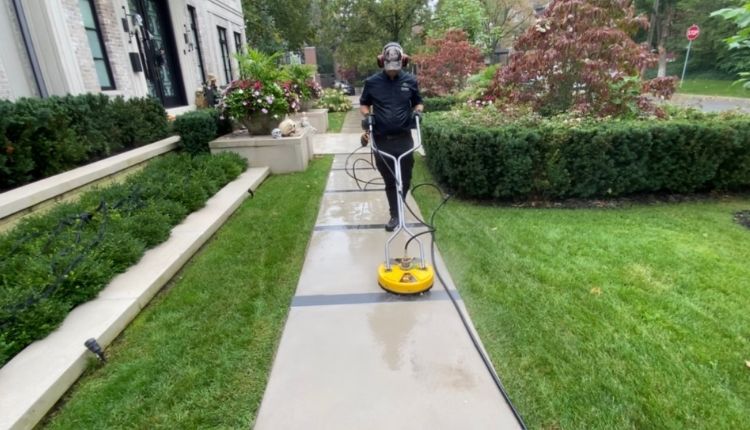
Protect the Environment by Pressure Washing Responsibly
Pressure washing is an effective method for cleaning decks, driveways, siding and other hard surfaces, but careless use of pressure washers can damage the environment. Pressure washing responsibly means focusing on two key elements: proper technique and utilizing green cleaning solutions. Here’s a list of steps to learn how to pressure wash responsibly while protecting the environment:
Select the Right Detergent and Cleaning Solutions
When selecting detergents and cleaner solution for pressure washing, it’s important to look for products that are classified as bio-based or eco-friendly. Avoid using chlorine bleach or ammonia-based formulas because these are toxic to plants and aquatic life. Instead, opt for solutions that contain natural ingredients such vegetable-based soaps or citrus extracts which break down rapidly in the environment and will have a minimal impact on water sources.
Choose Low Pressure Settings When Possible
Using high pressure settings when power washing puts wider range of local plant life at risk from the force of the water spray. Lower pressure settings will still do an effective job at removing dirt and debris from surface areas with less risk of damaging plants along the perimeter of your projects or any nearby water sources.
Use Suction Hoses when Collecting Water Runoff
In most cases, you’ll need to contain and collect runoff during a power washing project – especially if you plan on working near storm drains or catch basins that empty directly into lakes or rivers. Utilizing suction hoses connected to running water helps reduce pollutants entering our water sources through minimizing contact with contaminated surface runoff containing chemicals used in cleaning solutions, metals, plastic residue and other hazardous materials that cannot be easily broken down in nature.
Limit Accessory Unit Usage When Cleaning Decks & Siding
There are many powerful accessory units like rotating brushes available in addition to traditional nozzles used on electric models of power washers. If you have composite decking or large areas where there is potential plant life damage try relying on lighter cleaning equipment instead of more abrasive accessories tools which can lead to accelerated decay over time under normal wear & tear due environmental exposure conditions such as temperature fluctuations or excessive moisture levels. Pressure washing is an important tool in restoring the external appearance of masonry, as it removes dirt and grime from surfaces. However, improper pressure washing can also damage the environment, so it’s essential to be aware of best practices when pressure washing. Here are some tips on how to protect the environment by pressure washing responsibly:
Choose the Right Pressure Washer and Detergent
When choosing a pressure washer for your job, look at its power rating for water flow and not solely its pressure rating. A higher water flow cleans more efficiently with less water and less energy compared to high-pressure machines. When it comes to detergents, choose a biodegradable soap that won’t harm the environment. Eco-friendly soaps are safer for plants, grass and aquatic life if they are washed into bodies of water or down storm drains at any point during or after use.
Reuse or Recycle Waste Water
Pressure washing generates waste water contaminated with soil, grease and heavy metals—all pollutants that negatively affect rivers, streams and lakes if dumped directly into them. To avoid this potential hazard, reuse or recycle your waste water responsibly instead. Collected wastewater can be reused on other projects while still meeting environmental standards, and special bacteria treatments can help remove pollutants from large amounts of waste water before disposal in sewer systems or oceans.
Select Environmentally Friendly Cleaners
Bleach-based cleaners have been traditionally used to clean masonry surfaces but have since been replaced with modern techniques due to their toxicity levels. New solutions such as alkaline cleaners are just as effective yet compost safe and much better for our environment —making them a great alternative when cleaning outside surfaces without adding harmful chemicals into our ecosystems such as oceans or groundwater systems.
Be Aware of Any Hazards
It’s not only important to be conscious of what goes down your sink drain while using a pressure washer—you should also be aware of what goes down your chimney! Animal droppings from birds’ nests often accumulate on ledges near windowsills and cause hazardous materials such as asbestos that may become airborne when pressurized air enters through cracks in those ledges due to cleaning activity below them. So always wear a protective mask when working close to any known hazards like these ones in case particles get scattered throughout the air by mistake!



